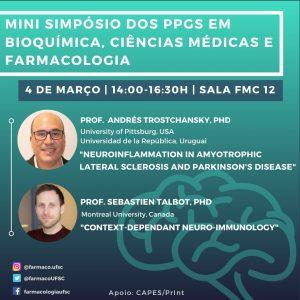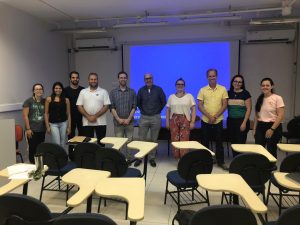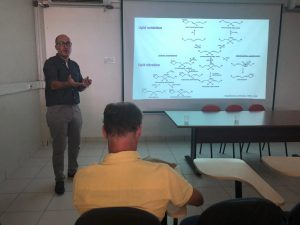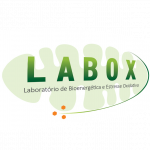-
Structure, metabolism and signaling of lipids in health and disease
The field of lipid signaling in health and disease is in rapid growth, and it is our intention to capture this momentum and excitement with a school and a mini-symposium focused on lipid metabolism, immunity and neurosciences.
Free as well as esterified fatty acids are key components of lipoproteins and cell membranes that can be affected by oxidative and nitrative stress conditions, characteristics of chronic inflammatory disorders. Nitric oxide-derived species react with unsaturated fatty acids yielding a variety of oxidized and nitrated products. In particular, nitroderivatives of long-chain unsaturated fatty acids containing a nitro-alkene group (NO2-FA) have been identified, detected, and quantified in plasma as well as in cell membranes and tissue. They modulate metabolic as well as inflammatory signaling pathways, that is, induction of phase II antioxidant enzymes such as hemoxygenase 1. In this course and lectures, we will discuss the key biological properties of NO2-FA in terms of modulation of the expression and activity of enzymes as well as their capacity to modulate lipid oxidation, nitric oxide production, and signaling.
Course: Structure, metabolism and signaling of lipids in health and disease
Graduate Program in Biochemistry, UFSC
Invited speaker: Prof. Dr. Andrés Trostchansky, University of Pittsburg
Host: Ariane Zamoner and Alexandra Latini
Location: Room SIPG209, 2nd floor, block C, new CCB building, UFSC
Date: March 4 – 10, 2020; 9-12 am and 2-5 pmMini-Symposium: Symposium CAPES/PrInt of the Graduate Programs in Biochemistry, Pharmacology and Medical Sciences
March 4 – 10, 2020
Host: Rui Daniel Prediger, Katia Lin, Roger Walz, Ariane Zamoner and Alexandra Latini
Location: Room FMC15, ground floor, block D, new CCB building, UFSC
Date: March 4, 2020; 2-4:30 pmLectures
Neuroinflammation in Amyotrophic Lateral Sclerosis and Parkinson Disease
Prof. Dr. Andrés Trostchansky, University of Pittsburg, USA
BiographyContext-Dependant Neuro-Immunology
Prof. Dr. Sebastien Talbot, University of Montreal, Canada
BiographyExcelente Mini-Simpósio, excelente palestras e discussões científicas! Aqui as fotos!








-
Transmission Electron Microscopy School & Scientific Symposium on Mitochondrial Biology
The field of mitochondrial biology and medicine is in rapid growth, and it is our intention to capture this momentum and excitement with a school and a symposium focused on mitochondrial physiology, dynamics.
Mitochondrial functions are linked to surprisingly dynamic behavior, as mitochondria adapt and respond to a plethora of cellular needs. Given that mitochondrial dysfunction is associated with a variety of chronic diseases, including neurological and neurodegenerative processes, as well as cancer and metabolic disorders that induce brain toxicity, there is an urgent need to understand how mitochondrial events are orchestrated and integrated within brain cells. This course and symposium on Mitochondrial Physiology and Dynamics aims to bring leading researchers who study mitochondrial function, regulation and mechanism together to build a complete picture of mitochondria as a platform to integrate signaling pathways and cellular processes in physiology and disease, such as cell survival, apoptosis, redox control, calcium homeostasis and metabolic and biosynthetic pathways.
The development of this school and symposium will also give the possibility for researchers from South America committed to the study of mitochondrial physiology and dynamics to establish and strengthen international collaborations. These scientific interactions and future collaborative activities, with the objectives of understanding the physiopathology of neurological / neurodegenerative diseases, will increase the quality of publications, prepare high quality human resources, and establish an international neuroscience network among South American researchers who are not geographically favored to participate actively in meetings in North America. In this context, this would be the first direct interaction between many of the participating researchers with groups from Argentina, Chile and Brazil who are leading this proposal. We believe that this specific activity will also stimulate the transfer of knowledge and eventually of technology to ensure that scientific and technological developments are accessible to a wider range of researchers.

